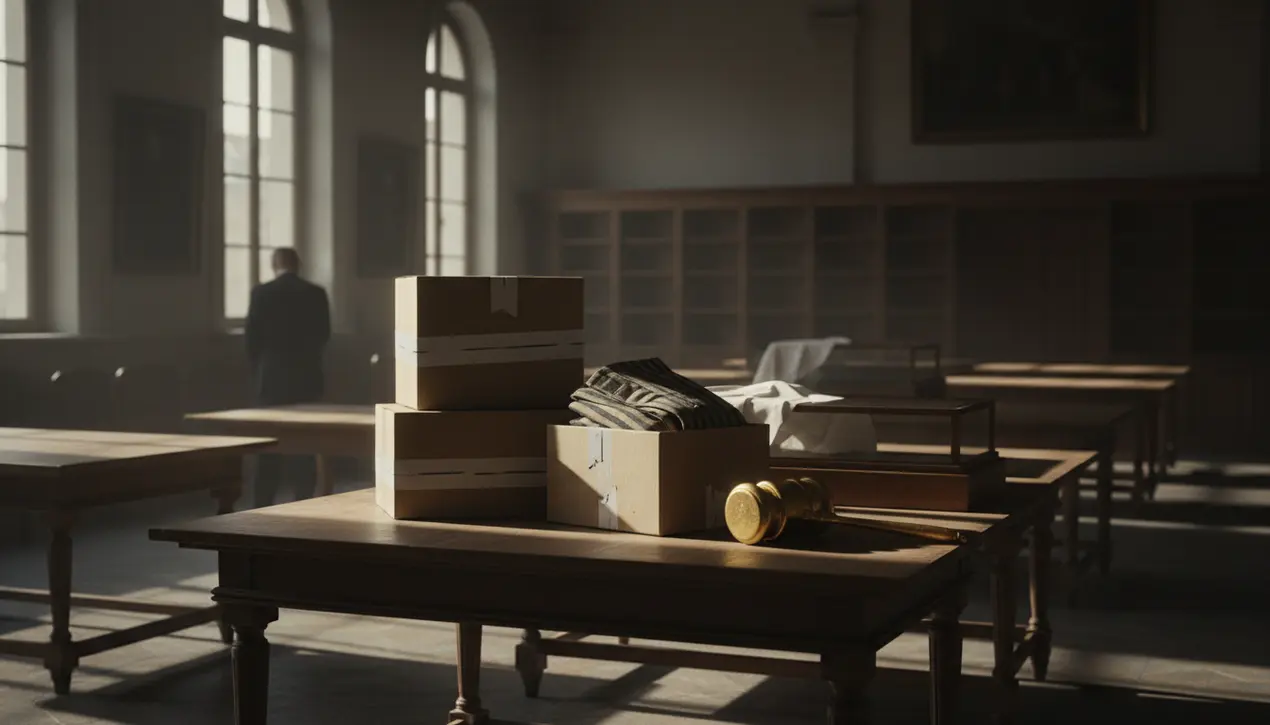
PoliticsdiplomacyCultural Diplomacy
German Auction House Cancels Sale of Holocaust Artifacts.
RO
Robert Hayes
2 hours ago7 min read2 comments
In a move resonating with the gravitas of historical precedent, a German auction house has abruptly cancelled its controversial sale of Holocaust artifacts, a decision echoing the Polish Foreign Minister Radoslaw Sikorski’s poignant declaration that 'Respect for victims requires the dignity of silence, not the din of commerce. ' This is not merely a market correction but a profound moment of ethical reckoning, reminiscent of the long, painful debates surrounding the restitution of art looted by the Nazis.The very notion of placing such items—potentially striped uniforms, personal effects, or documentation from the camps—on the auction block forces a confrontation with the memory of the six million Jews and millions of other victims murdered by the Third Reich. One must consider the historical parallel of the post-war Nuremberg trials, which established not just a legal framework for justice but a moral imperative for how humanity should handle the physical remnants of such unparalleled barbarism.The commercialisation of these objects risks transforming sacred testaments to suffering into mere collectibles, commodifying agony in a manner that historians and ethicists have long warned against. This incident raises urgent questions about the responsibilities of cultural institutions and private entities in stewarding such dark chapters of history.Should these artifacts be exclusively within the purview of state museums and memorials, like Yad Vashem in Israel or the Auschwitz-Birkenau State Museum in Poland, where they are contextualised for education and remembrance rather than profit? The auction house’s capitulation suggests a belated recognition of this duty, likely spurred by intense diplomatic pressure and public outcry that recalled the controversial auctions of historical memorabilia from other genocides. The consequences of this decision are multifaceted; while it temporarily halts a specific commercial transaction, it sets a powerful precedent that may deter similar sales in the future, compelling a broader, international conversation on establishing clear, enforceable guidelines for the trade in items tied to mass atrocities.The analytical insight here is clear: the market for history is increasingly colliding with the ethics of memory, and as with the debates over colonial-era artifacts in European museums, the line between preservation and exploitation is being redrawn in real-time. This event underscores that some chapters of human history are too heavy for the gavel, demanding a silence that honors the dead far more than any currency ever could.
#Holocaust artifacts
#auction cancellation
#German auction house
#cultural sensitivity
#diplomacy
#Poland
#featured
Stay Informed. Act Smarter.
Get weekly highlights, major headlines, and expert insights — then put your knowledge to work in our live prediction markets.
Related News
Comments
Loading comments...
© 2025 Outpoll Service LTD. All rights reserved.